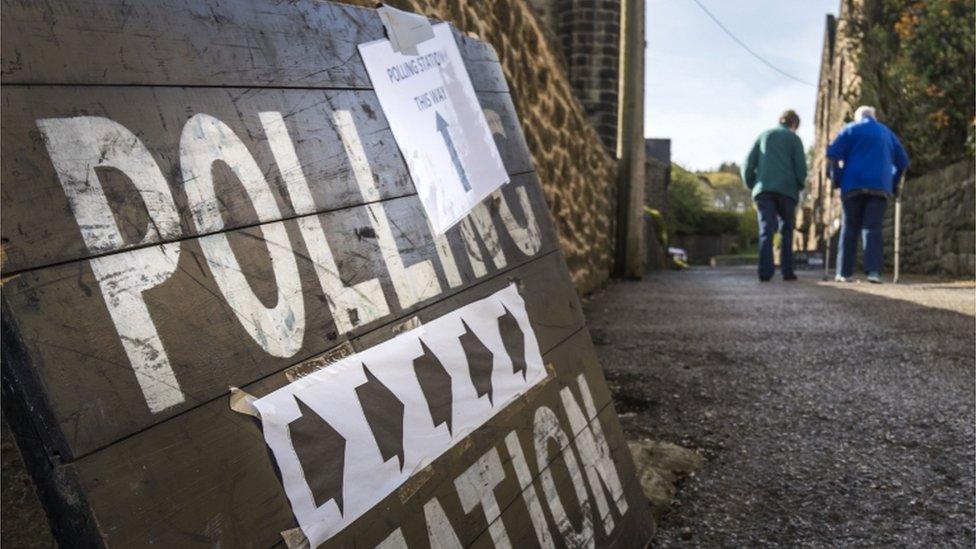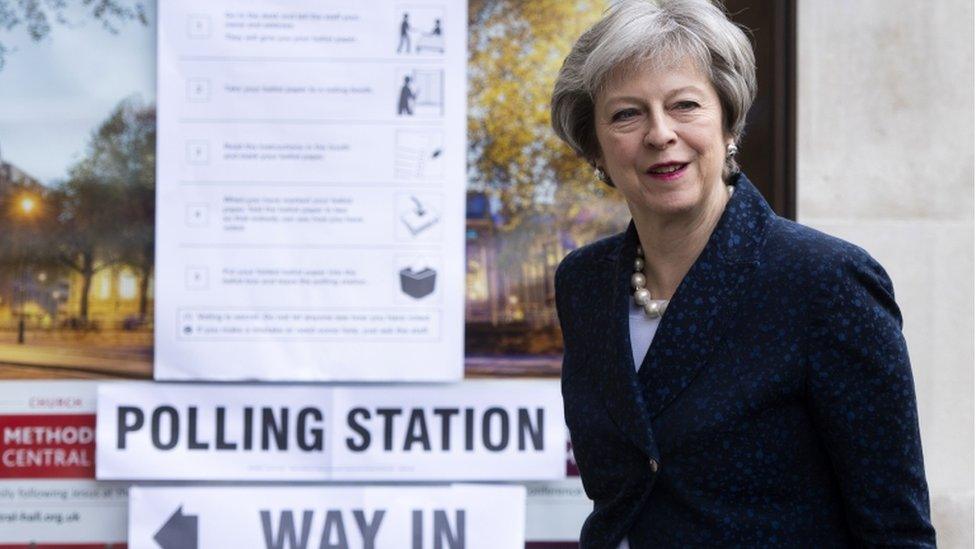Local elections 2018: What will elections tell us about parties?
- Published

That's it! The polls are closed.
In 150 areas the ballot boxes will be sealed up and spirited to sports halls, schools and council offices around the country.
In many of them around England, the tellers will be flexing their fingers, ready for a long night ahead.
In other places, they'll be asleep, ahead of a long day at the counts tomorrow.
And for the politicians? Well, this is the moment where they know they have completely surrendered control.
They can't knock on any more doors. They can't make any more promises.
And their councillors, activists and supporters can only wait and watch as the decisions of the public become clear, in the first completely authentic tests of public opinion since the general election.
First off, here are the caveats.
Elections aren't taking place everywhere. Voters have been to the polls right across London, and in other big cities and towns, Swindon, Plymouth, Carlisle, Sheffield - north, South, East and West.
But in the areas up for grabs, Labour already holds more than half the seats - they are largely urban and metropolitan areas.
So the results themselves will give a flavour of where particular parts of the country, certain types of voter are going, rather than a full national picture.
It's also important to know that the last time these seats were contested was 2014, in a totally different political universe.
David Cameron was still the prime minister. Nick Clegg was still the deputy prime minister. Ed Miliband was the leader of the Labour Party and Nigel Farage was in charge of UKIP, who were sweeping up more and more support.
I don't need to remind you how much has changed since then. Remember too that local issues, unsurprisingly, are part of how people make their minds up in these local elections.


Bear in mind that what happens in the next 24 hours doesn't definitively tell us anything about what will happen at the next general election.
But, it gives us big clues about the direction in which the parties are going.
Both of the main parties have had a difficult couple of months, grappling with their own demons.
The national opinion polls suggest that they are also locked in a kind of stalemate with each other, roughly level pegging, both struggling to make any decisive moves.
The Labour Party is almost certain to make big advances in London, potentially taking some of the Tories' totemic councils like Wandsworth and it's not impossible they'll take Kensington too.
But London is already a Labour city. The harder test for them to pass is to show that they can advance, in parts of the country where there are marginal Westminster constituencies - Swindon, Southampton, Watford.
For the Tories, it is a case of stopping the rot. They dropped back, relative to Labour, in the general election.
Traditionally, the governing party loses significant numbers of seats in local elections. But Theresa May is vulnerable. Her supporters have been fighting to stop the slide.
It's possible though that the results may not see swathes of the country change hands.
One senior Labour figure suggested this week that we may, broadly, simply see both parties digging in more firmly in territory that seems naturally theirs, a confirmation of what we saw at the general election - where Labour consolidated its urban support, and the Tories deepened their reach in town and country.
Politics has changed at breakneck speed in the last few years. In contrast, these elections could see in the main, a deepening rather than a reverse of recent trends.